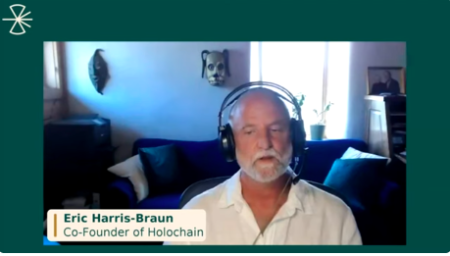Democratizing Monetary Issue: Tools for Resilience | Schumacher Conversations
September 2023
Participants: William O. Ruddick

Summary :
Highlights from our August Conversation
Christine Desan highlights a key moment in American monetary history
Professor Desan of Harvard Law School opened the discussion with a primer on monetary design. « Money is a public creation; it is a form of public credit. » This fact, she explained, holds true « from medieval coin to the modern dollar. » Her historical research informs Christine’s advocacy for public banking and local currencies. As money is a public creation, citizens can and should seek to redesign these systems with « democracy and local flourishing in mind. »
In her book, Making Money: Coin, Currency, and the Coming of Capitalism (2014), Christine charts how a radical change in monetary design helped to usher in industrial capitalism as we know it. In the U.S., during the Civil War and its aftermath, the Federal government delegated money-creation to private investors. It was that shift, she argues, that enshrined the profit-motive as the engine of American political economy, to the advantage of big banks.
Christine reminds us that this change did not go uncontested. Populist proposals would have had the government issuing money directly to agrarian producers, with their produce as the « sound basis of credit. » When grassroots calls went unheeded, tenant farmers were impoverished by « a system of debt peonage »— a precedent with far-reaching ramifications. As we reawaken to the shortfalls of that public-private arrangement today, Christine urges all of us to action:
“Money, this kind of public credit… can be configured in many different ways…we can redesign [it] with democracy and local flourishing in mind… »
Susana Martin Belmonte’s groundbreaking local currency case study
As both a research economist and a local currency practitioner, Susana spoke to the interplay between local and global monetary systems. The undemocratic design of national and super-national currencies (such as the Euro), she explained, « takes away the capacity of people to decide what kind of development they want, and how to make it. »
Invoking the vision of Schumacher, she described the REC (Real Economy Currency) initiative of her own city, Barcelona, as an example of monetary technology « with a human face. » The experiment in distributing social subsidies in the locally-bound currency spurred recirculation within the city.
« The idea was to promote the local economy, turning an individual subsidy into a collective subsidy for the local economy…We tested by measuring the multiplier effect of public spending, comparing it to the Euro…
In this case, we showed that [the REC local currency] helped increase the aggregated income created by these money injections… »
Tying these insights together during the Q&A, Susana suggested that the harmful effects of central bank policy since 2008 might unexpectedly yield opportunity. « We see that money can be issued to solve social problems, but for all the wrong reasons. » Currency initiatives that nurture community and trust, like the REC, offer tested alternatives ready to be replicated at wider scale.
Will Ruddick on appropriate technology for peer-to-peer exchange
Grassroots Economics is an innovator in local exchange systems based in Kenya, with a body of work around Sub-Sarahan Africa. Their simple, text-based cellular applications serve dozens of cash-strapped communities, many in rural areas. By Will’s account, this appropriate technology has facilitated some $4 million in trade value with over one million transactions registered via decentralized ledgers.
Designing community inclusion currencies in post-colonial settings, Grassroots Economics incorporates pre-colonial heritage into their work. Will shared the indigenous tradition of Mwethia, a type of local, rotational labor association he described as a credit system without a formal currency, but with relational accounting practices—stated simply, a type of commons.
Building on these roots, his organization introduces modern peer to peer technology into the mix. This enables individual community members to « express their value » to others and pool promises together in a system with more liquidity. This deconstructed understanding of money, he says, can inspire practitioners in the Global North as they seek to build sovereignty and disentangle from unjust systems.
“There’s a lot of ways in which we can start looking at organizations, states, democracies as pools of expressions of value – how do we care for one another and build cycles of trust with one another?”
